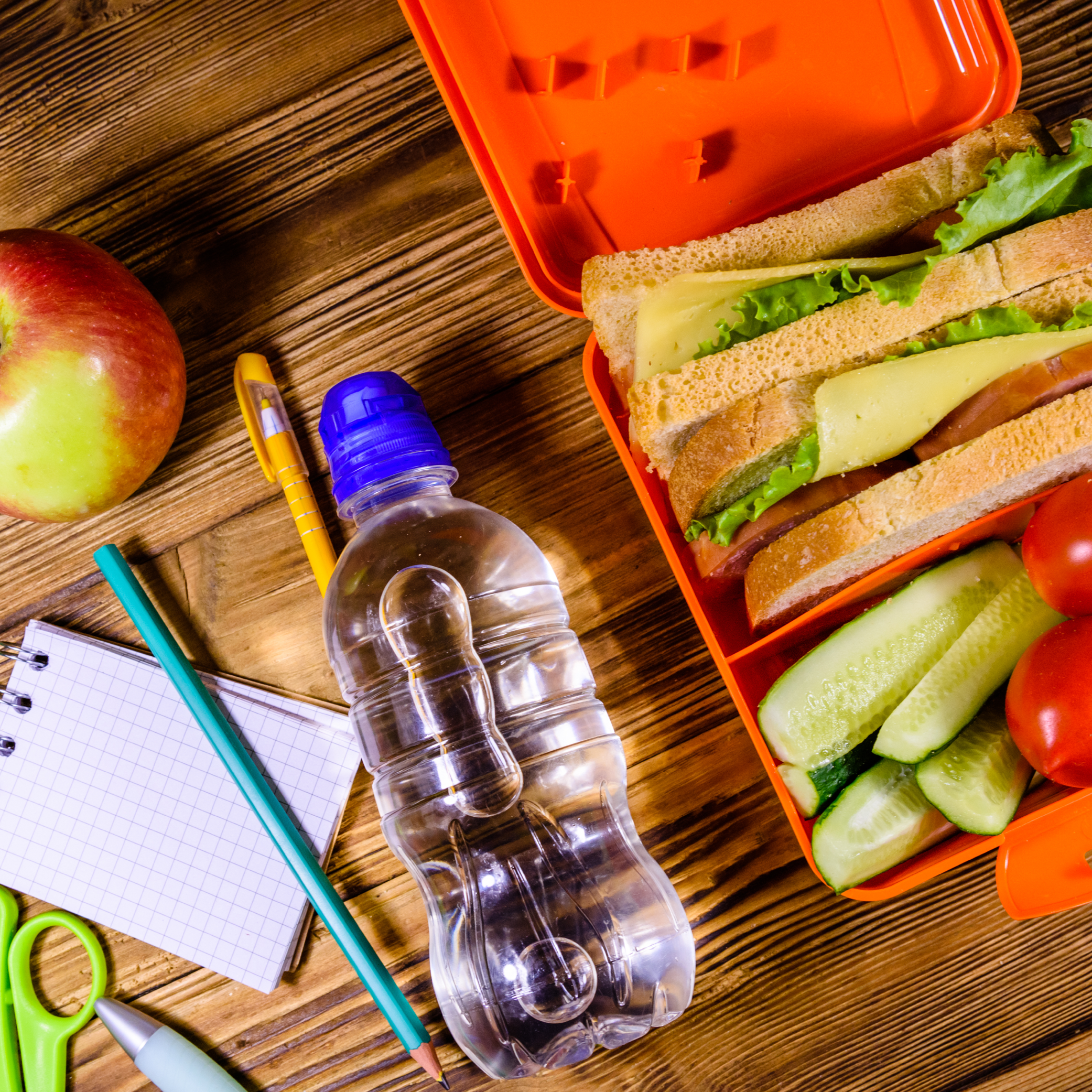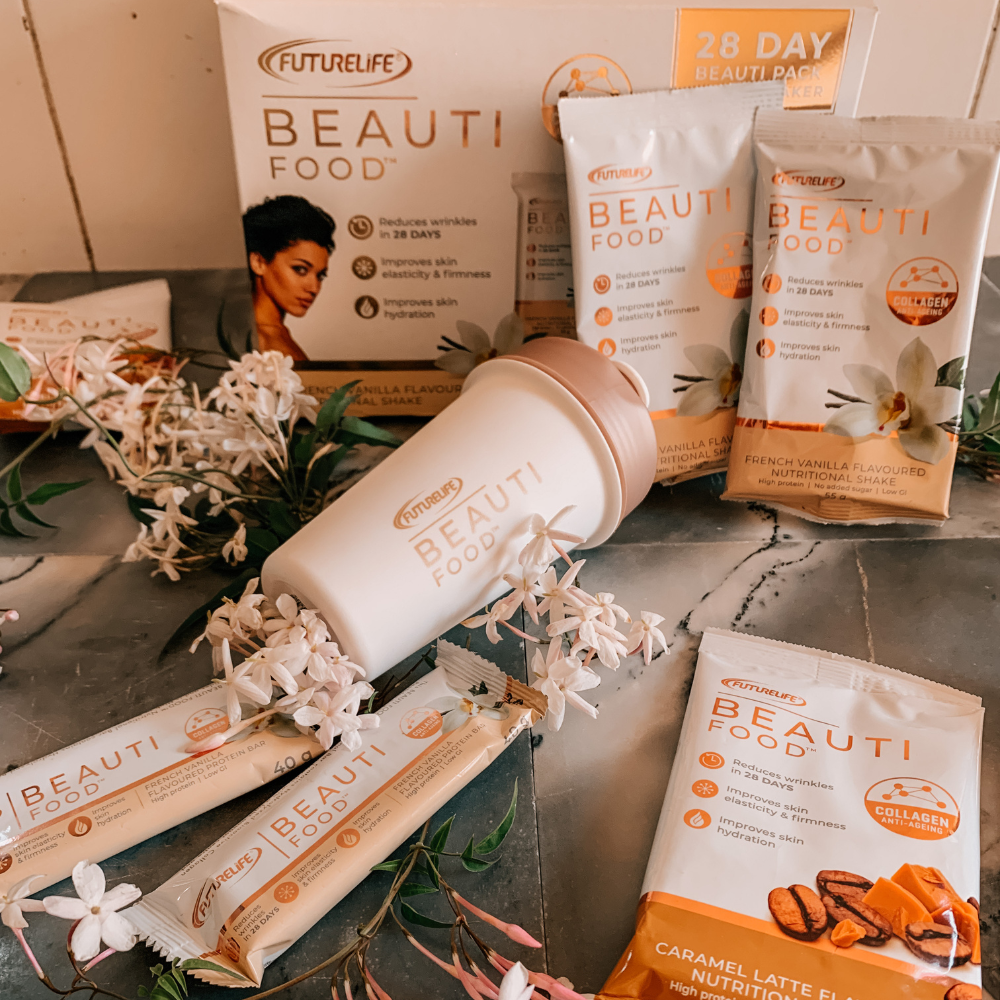TIPS TO TEACH YOUR CHILD ABOUT HEALTHY EATING

Good nutrition during childhood is vital for both physical and mental growth and development. Studies have shown that the first few years of life are the optimal window for establishing healthy eating behaviours in children1. These behaviours are influenced by children’s personal experiences and observing eating behaviours of others. By setting a good example and teaching your child healthy eating habits from the start, you can equip them with the tools for a lifetime of healthy eating.
You may be thinking that this is not as straightforward as it seems because you’ve offered your child a variety of fruits and vegetables in all shapes and forms yet you still get a frown as they press their lips closed to signal to you that they’re not going to eat it. The tips below may assist you overcoming this battle and make learning about healthy eating fun while you bond with your child.
FUN SUGGESTIONS
That’s the way, eat your 5 a day.
This activity may be the solution to the food wars with your child. The idea is to use a chart for the week with 5 circles per day. Each circle represents a serving of a fruit or vegetable. Once your child consumes a serving of a fruit or vegetable, they can colour in the circle.
Depending on the age of your child, you can also specify portion sizes. For example, if they only eat half a portion of a fruit or vegetable they can only colour in half of the circle. Eating a variety of fruits and vegetables is also essential to get a variety of nutrients. Get them to colour in the circles with the same colour as the fruit or vegetable so they start to understand the importance of variety.
In some cases the excitement of filling up the chart is enough motivation for your child. Alternatively you can offer incentives, this could be a toy that they have their eye on at the end of the month, television time or a gold star sticker to show off to the family. Find a ‘policy’ that works for you and your child. The ultimate goal is to develop habits that do not require incentives, however, this will take time if your child doesn’t usually eat a lot of fruits and vegetables. Have fun and avoid making it seem like a chore. Make sure you hype up the game and get excited about it so that your child does too. Below is printable example of a chart you can use for the game.

Modern Means
If your child is old enough to read and is more of a ‘techno kid’, you can also supervise them and encourage them to play free on-line educational games that teach them about healthy eating. These can be found on the website www.healthyeating.org.
In addition to the above, there are a few other things you can do to encourage healthy eating:
- Set a good example.
As explained above, children establish eating behaviours that are modelled around those of others. Ensure that your diet consists of balanced meals with a variety of fruits and vegetables.
- Eliminate unhealthy foods from your grocery cupboard.
Try not to keep treats readily available at home. This creates temptation.
- Start a fruit and vegetable garden.
This is great activity for children. Planting the seeds and watching the fruits and vegetables grow gets them interested and excited to sample them.
- Involve them in food selection.
Teach them what the different fruits and vegetables are called. Allow them to pick a different fruit or vegetable of their choice to try out and help you pick out those that are on your grocery list.
- Involve them in food preparation.
Under your supervision, give them small easy tasks to do to help with the preparation of meals. Ask them to pass you a spoon or let them pull the leaves off a lettuce head.
- Encourage them to try out different fruits and vegetables.
Children will see or hear of others disliking a certain vegetable and automatically be inclined to avoid it. Encourage them to try out a variety of different vegetables by presenting the vegetables to them in fun ways. You can put them on a skewer, cut them into interesting shapes and create rainbows, palm trees or stick men out of fruits and vegetables. You can also use fun names for vegetables. For example broccoli can be called “baby trees”.


- Be persistent.
Children are not always open to trying out new foods at first. Make a constant effort to provide them with healthy meals and offering the same fruits and vegetables in different forms.
- Offer dips.
Try making healthy dips like hummus and cut up vegetables into sticks for dipping.
- Juices and lollies.
Blend a variety of fruits and vegetables to make a juice. Give the juices fun names. These could be based on their favourite cartoon character at the time. These juices can also be poured into ice lolly trays and frozen to make healthy lollies for hotter days.
Try out the recipe below. It’s as easy as ABC!
Ingredients:
- 2 small beetroot (about 200g), remove skin and cut to small chunks
- 2 medium carrots, skin peeled, cut to small chunks
- 1 large red apple, cut to small chunks
Directions:
- Blend ingredients and serve.

As Nelson Mandela once said, ‘it always seems impossible until it’s done’. Make meal times a happy time where your child enjoys balanced and nutritious meals. Find what works for them and pave the way towards a better, brighter and healthier future for them.
WHERE DOES FUTURELIFE® FIT IN
Are you pressed for time in the morning and struggling to find a quick, great tasting option to provide your child with complete nutrician? What if I told you that you could also get a good example for them by enjoying a bowl of it too? FUTURELIFE® Smart FoodTM ticks all the boxes providing complete nutrition with a host of added nutritional beneifts.
Visit our website www.futurelife.com for more articles, product information and recipes.
REFERENCES:
- https://www.ncbi.nlm.nih.gov/pmc/articles/PMC2678872/
- https://familydoctor.org/nutrition-healthy-eating-for-kids/
- http://www.eatright.org/resource/food/nutrition/eating-as-a-family/raise-healthy-eaters-in-the-new-year
- http://www.kidspot.com.au/20-fun-fruit-and-veggie-snack-recipes-to-get-little-kids-eating-without-a-fuss/
- http://www.superkidsnutrition.com/PDF/activities/Super-Crew-Tasting-Party.pdf
- http://theeducatorsspinonit.com/2012/03/little-hands-that-cook-with-books-lets.html
- http://andreasnotebook.com/get-kids-to-eat-5-a-day-easily/
- https://www.learningzonexpress.com/healthy-kids-healthy-foods-nutrition-activities.html
- http://www.noobcook.com/abc-juice-apple-beetroot-carrot/
IMAGES:
- http://www.kidspot.com.au/20-fun-fruit-and-veggie-snack-recipes-to-get-little-kids-eating-without-a-fuss/
- http://theeducatorsspinonit.com/2012/03/little-hands-that-cook-with-books-lets.html
Recipe and image from http://www.noobcook.com/abc-juice-apple-beetroot-carrot/









